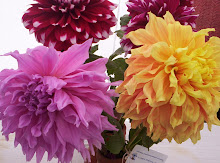Before leaving for London, I started looking up for the best bargain available at the Travel Agents’, and finally settled for the Russian Airlines. The route was a bit circuitous but I enjoyed it thoroughly including the brief stay at Moscow airport.
Once in London I paced the streets of the city with a guide-map in hand and with zeal perhaps unequalled by the Londoners themselves. The book was borrowed free from the local library and the walks were not on the trodden path. It was sheer beauty walking along the Thames and across the green meadows throwing up nature’s bounty. Picadilly could be rather boring at times; Leicester Square was bustling with life, always. I learnt with a heavy heart that Her Majesty was unkind enough to impose a hefty entry-fee for a visit to the Buckingham Palace. After a grab at McDonald’s everyday I would say goodnight to the world and hug my cozy bed at the Youth Hostel.
To enjoy ‘An Evening in Paris,’ I carefully avoided the rail and air travel and opted for the cheaper bus-cum-ship trip. Crossing the English Channel by night was like a dreamy voyage. Paris was its usual self, humming with life and vigour. I was mesmerized by the looks of the mysterious Mona Lisa. She was looking straight at me and smiling beautifully. After all, how could she ignore the handsome young man from India? The height of the Eiffel Tower heightened my love for the French capital. And a good number of ‘miss’adventures helped me carry the scent of Champs Elysses forever.
All these days, I never forgot to record the people, the nature and the events with the camera I carried. The London photo-shop I went to assured service for seven pounds only. Two days later I found to my surprise that the photos were not ready. The gentleman at the counter apologized for the delay, noted down my address and asked for a day’s time more. The day after they informed that the machine might have gone wrong and they were afraid my photographs were damaged. I was furious – seven pounds and no service! Do they know the exchange value in Indian currency? And what happens to the memory of my first trip to Paris? That was my prime concern, you see. But I could not say anything; those people were so sober and soft-spoken in dealing with the customers. Fuming and almost ready to burst, I told myself the British too picked up the art of procrastination and carelessness from us. Did I feel a bit proud of our contribution to the British Empire?
The next day I received a call and walked into the shop with the resolve to thrash them like anything. To hell with gentlemanliness. After all, here is an Indian used to encounter thick-skinned Customer Care executives back home. Just then the guy at the counter handed over a packet to me. There were all the photographs in it brightly printed, save one. I was perplexed. So what was the problem after all? And what’s the delay for? In an explanatory fashion, he informed me that they did the whole roll thrice over to save that single print. Was he joking? Not really. He expressed regret for the failure and delivered a letter from their Customer Care department: “Dear Sir, I regret not being able to address this letter to you personally. It is with sincere apologies that I have to advise that during the processing of your order, a minor machine problem has caused very slight damage. We have tried to produce the best possible results from the remaining exposures, but as a token of our concern, please accept the entire order free of charge. Yours, Customer Care Officer.”

